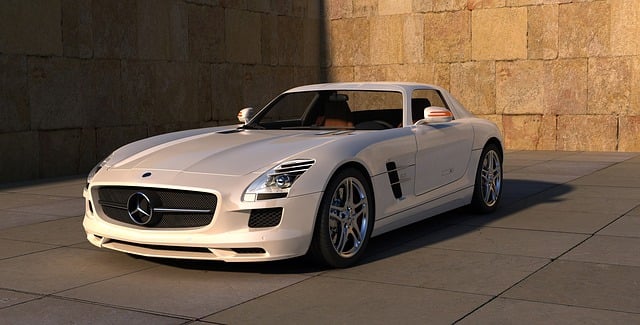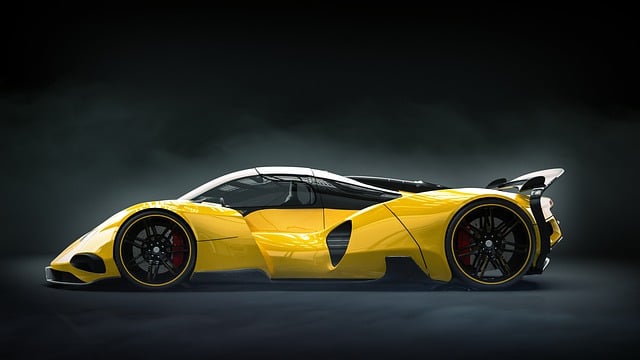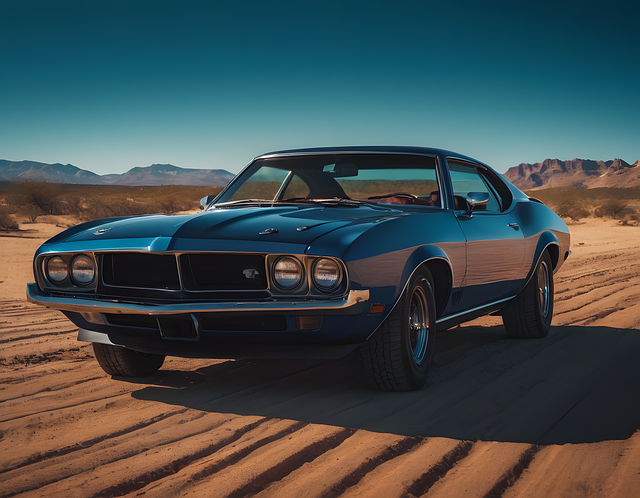Car brands have evolved rapidly in the large and ever-changing automobile industry, molded by technology breakthroughs, customer tastes, and market trends. From modest origins to worldwide renown, each vehicle brand has had a distinct path filled with highs and lows. In this article, we look at the intriguing history of vehicle brands across time, giving light on their transforming routes and lasting legacies.

Birth of Icons:
Many of today’s well-known automobile companies sprang from the beginnings of the automotive age, propelled by visionary founders and ground-breaking breakthroughs. Ford, Chevrolet, and Mercedes-Benz are identified with automotive greatness, having pioneered mass manufacturing, introduced legendary models, and established new performance and design standards.
Innovation and adaptation:
As the automobile business progressed, automakers had the problem of keeping ahead of the competition. Electric vehicles, hybrid technologies, and self-driving cars have transformed the landscape, forcing automakers to adapt and develop in response to shifting customer expectations and environmental concerns. Brands like as Tesla, Toyota, and BMW have been at the forefront of adopting new technology and pushing the frontiers of automobile innovation.
Rise and fall:
Regardless of their success, not all vehicle manufacturers have had a smooth history. Economic downturns, business restructuring, and changes in customer tastes have all contributed to the growth and fall of many great brands. Former automobile industry stalwarts such as Pontiac, Oldsmobile, and Saturn were forced to close their doors due to market difficulties.
Rebirth and resurgence:
However, the narrative does not finish here. Some vehicle companies have made extraordinary comebacks, reinventing themselves and recovering their market positions. Brands such as Jaguar, Land Rover, and Chrysler have undertaken strategic revitalizations, introducing new models, redesigning their image, and repositioning themselves for success in today’s automotive market.
Looking ahead:
As we examine the history of automobile brands across time, it becomes evident that the automotive industry is a dynamic and ever-changing environment. Car companies, from pioneers in the past to disruptors in the present, continue to affect how we move and interact with our surroundings. As technology evolves and customer tastes shift, automobile manufacturers will face new innovations, difficulties, and chances to make their imprint on automotive history.
Revolutionary Design:
One of the most fascinating parts of the growth of automotive manufacturers is the evolution of design aesthetics. From the elegant lines of Italian sports cars to the gruff appeal of American muscle vehicles, each decade has produced iconic designs that have come to represent their own companies. Car manufacturers such as Ferrari, Porsche, and Lamborghini have continuously pushed the limits of automotive design, producing timeless masterpieces that continue to enchant aficionados all over the globe.

Technological Advances:
The growth of automobile brands is inextricably connected to technical advances that have transformed the automotive industry. From the introduction of safety elements such as seat belts and airbags to the incorporation of cutting-edge infotainment systems and driver-assistance technology, automobile manufacturers have consistently lifted the bar in terms of innovation and technical perfection. Brands like as Audi, Volvo, and Subaru have been at the forefront of safety innovation, developing innovative technology to improve the driving experience and safeguard passengers.
Global Expansion:
As transportation demands have changed, vehicle manufacturers have stretched their influence outside their home markets, becoming global enterprises. The globalization of the automobile industry has resulted in the rise of new companies from developing countries such as China, India, and South Korea, challenging existing brands and redefining the competitive landscape. Companies such as Hyundai, Kia, and Geely have used their global presence to create new models targeted to different regions, expanding the alternatives accessible to buyers globally.
Sustainability and Environmental Responsibility:
In recent years, automobile manufacturers have been under growing pressure to address environmental issues and support sustainability programs. The transition to electric cars, fuel-efficient technology, and renewable materials demonstrates an increasing commitment to lowering carbon emissions and minimizing transportation’s environmental effect. Tesla, Nissan, and Volkswagen have made huge investments in electric mobility, paving the way for a greener, more sustainable future for the automobile industry.
Aside from technological advancements, vehicle brands have exercised tremendous cultural and social impact, affecting popular culture and societal trends. Iconic vehicles such as the Ford Mustang, Volkswagen Beetle, and Mini Cooper have become cultural emblems of freedom, flair, and personality. Car brands have also influenced lifestyle trends, with luxury brands like Rolls-Royce and Bentley representing rank and distinction, and off-road experts like Jeep and Land Rover evoking a feeling of adventure and exploration.
In essence, the development of automobile brands is a varied journey characterized by invention, creativity, and adaptability. From their pioneering roots to their ongoing quest of perfection, automobile manufacturers have stayed at the forefront of technical innovation and cultural significance. As we look forward, the transformation of vehicle brands is expected to continue, fueled by a dedication to innovation, sustainability, and customers’ ever-changing demands and preferences.
Cultural Icons and Enduring Legacy:
Beyond their technical advances and design aesthetics, several vehicle companies have transcended their position as simple automakers to become cultural icons with lasting legacies. Brands like Ferrari, Porsche, and Aston Martin inspire a feeling of elegance, performance, and exclusivity that goes well beyond vehicles. These brands have created a mystery and attraction that captivates fans and collectors all over the globe, solidifying their reputation as symbols of grandeur and desire.
Heritage & Tradition:
The development of automobile brands is also heavily influenced by legacy and tradition, with many manufacturers dating back to the early days of the automotive industry. Rolls-Royce, Bentley, and Cadillac have a long heritage of tradition and workmanship, relying on decades of expertise to build cars of unrivaled elegance and refinement. These businesses honor their illustrious pasts while embracing modernity and innovation, achieving a delicate balance of history and development.
Brand Loyalty & Community:
One of the most fascinating elements of the history of automobile brands is the feeling of loyalty and community they foster among fans. Car manufacturers have built devoted fan bases and communities that go well beyond the shop floor. From enthusiast clubs and online forums to yearly conferences and rallies, vehicle brands build a feeling of community and shared enthusiasm among owners and enthusiasts, forming long-lasting relationships and friendships based on a common love of cars.
Challenges and opportunities:
Despite their long histories and lasting legacies, automotive brands confront a slew of difficulties and possibilities in a market that is becoming more competitive and dynamic. From innovative technology and shifting customer tastes to regulatory challenges and economic uncertainties, vehicle manufacturers must negotiate a complicated terrain rife with dangers and opportunities. However, with innovation, flexibility, and a dedication to quality, vehicle businesses may overcome these hurdles and continue to shape the future of transportation for future generations.
Global Impact and Market Dynamics:
Car brand development goes beyond design aesthetics and technology improvements to include worldwide effect and market dynamics. As the automobile sector grows more integrated and interdependent, automakers must negotiate complicated geopolitical settings, trade agreements, and market volatility. Toyota, General Motors, and Volkswagen have built themselves as global giants by utilizing their enormous networks and diversified product portfolios to prosper in a wide range of markets worldwide.
Emerging trends and disruptive innovations:
Emerging trends and disruptive developments, which challenge established paradigms and redefine the automotive sector, also influence brand evolution. From the advent of electric cars and self-driving technology to the introduction of mobility-as-a-service and shared mobility solutions, automobile manufacturers are at the forefront of innovation, pushing change and transforming how we think about transportation. Tesla, Waymo, and Uber have been at the forefront of developing new business models and technology, paving the way for a more sustainable, efficient, and connected future.

Customer Experience & Digital Transformation:
In an increasingly digital world, vehicle manufacturers must emphasize customer experience and embrace digital transformation in order to remain competitive. From online sales platforms and virtual showrooms to linked vehicle technology and tailored services, automotive makers are using digital technologies to improve the consumer experience and distinguish themselves in a competitive market. Brands like as BMW, Mercedes-Benz, and Audi are investing extensively in digital innovation to provide seamless and immersive experiences that meet the demands and tastes of contemporary customers.
As public knowledge of environmental concerns rises, automakers are under growing pressure to show corporate social responsibility and support sustainability efforts. Car manufacturers are taking proactive initiatives to reduce their environmental footprint and lessen the effect of their operations on the globe, from encouraging renewable energy and lowering carbon emissions to investing in eco-friendly materials and manufacturing techniques. Companies like as Ford, Volvo, and Toyota have made considerable commitments to sustainability, establishing ambitious goals and paving the way to a more sustainable future for the automobile industry.
Collaboration & Partnership:
In an age of fast change and disruption, cooperation and partnerships have become critical tactics for automakers looking to innovate and remain ahead of the competition. From strategic alliances and joint ventures to research collaborations and technology partnerships, automakers are harnessing external stakeholders’ knowledge and resources to accelerate innovation and drive growth. Collaborations between firms like as Ford and Rivian, General Motors and Honda, and Volkswagen and Ford demonstrate the value of cooperation in creating the future of mobility and promoting good change in the automotive sector.
Cultural adaptation and localization:
As automobile manufacturers enter new countries and areas, they must adapt to local habits, tastes, and restrictions. Cultural adaptation and localization tactics are critical for ensuring that automobile brands connect with customers in a variety of global regions. From adapting features and designs to harmonizing marketing messaging and distribution channels, automakers must adjust their goods to fit the specific demands and expectations of local customers. Toyota, Volkswagen, and Hyundai have succeeded in this area, building significant footholds in markets across Asia, Europe, and the Americas because to their dedication to cultural sensitivity and localization.
Brand differentiation and competitive advantages:
In a congested environment, brand distinctiveness is critical for sticking out and establishing a competitive edge. To separate themselves from competition and attract consumers, car manufacturers must define and successfully communicate their distinct value propositions. Car companies must work hard to establish a unique identity that connects with customers and inspires brand loyalty, whether via product innovation, customer service excellence, or brand storytelling. Companies such as Tesla, Subaru, and Porsche have effectively distinguished themselves by concentrating on innovation, performance, and customer experience, resulting in passionate followings and long-term success in the automobile industry.
The Future Of Mobility:
Moving forward, the growth of automobile brands is inextricably linked to the future of transportation, which promises to be more networked, electric, and autonomous than ever before. To remain relevant in a fast changing business, automakers must foresee and react to future trends such as electric and self-driving cars, connectivity, and mobility-as-service. BMW, Audi, and Ford are spending extensively in R&D to drive innovation and define the future of mobility, establishing themselves as pioneers in the transition to sustainable, efficient, and intelligent transportation solutions.
Corporate Culture and Organizational Agility:
Car brand development is about more than simply technology innovation and market dynamics; it’s also about company culture and organizational adaptability. To flourish in an increasingly complicated and competitive world, automotive manufacturers must cultivate cultures of invention, cooperation, and adaptation. From adopting agile approaches and digital transformation to cultivating a culture of continuous learning and experimentation, automakers must empower their staff to innovate and drive change from within. Companies such as Tesla, Google’s Waymo, and Daimler’s Mercedes-Benz have adopted an innovative and agile culture, allowing them to remain ahead of the competition and shape the future of mobility.
Conclusion:
To summarize, the history of automobile brands is a complicated journey influenced by global trends, technical advancements, market dynamics, and cultural changes. From their beginnings as pioneering companies to their current stature as worldwide icons, automotive brands have changed and adapted to suit customers’ shifting demands and expectations. Looking forward, the growth of automotive brands promises to be a dynamic and revolutionary journey, propelled by innovation, sustainability, and an unwavering pursuit of perfection. Car companies have the chance to impact the future of mobility and promote good global change by embracing change while remaining loyal to their basic beliefs.